16 Dec 2021 - {{hitsCtrl.values.hits}}
How one theatre crew helped bring the experiences of children in the estate community centre stage
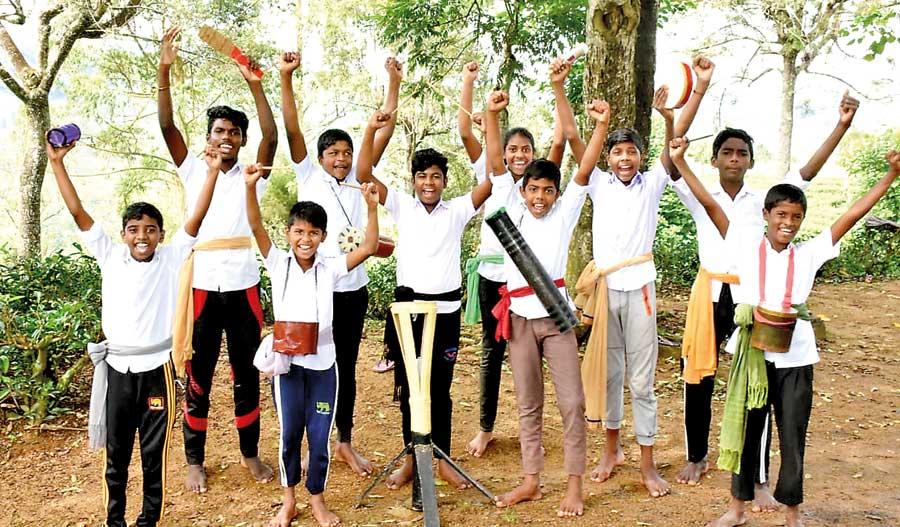
The pandemic upended the lives of many, but children in Sri Lanka perhaps bore the brunt of this change. Kirkoswald middle division, in Bogawantalawa, is a tea estate where children of various ages have gone through the challenges of the pandemic, similar to other children — but with the added woes of upcountry estate living.
where children of various ages have gone through the challenges of the pandemic, similar to other children — but with the added woes of upcountry estate living.
With a goal to help children come to terms with the burden of the pandemic, the Theatre Mates Cultural Association with Rasiah Logananthan decided to use theatre as a device to help these children. Applying to the recently concluded Children in Lockdown Arts Festival, the group decided to use theatre to illustrate the problems upcountry children faced during the COVID-19 pandemic. Their focus was to discuss how children faced these issues and also to illustrate what kind of backgrounds the children came from.
"Despite just being 10 years old, he went around estates and asked for work"
The result of months of hard work with the children of the estate community was titled, Pillaihaley Eluveer. (Children, Wake Up). “We first did a theatre workshop for these children. Through this we began to slowly draw out the issues faced by these children. This is how we crafted a story through their own experiences,” Director of the play Rasiah Logananthan said. Assistant Director and project coordinator Selvaraj Leelawathy, Production designer and founder of Theatre Mates Ronika Chamali and M. Ajanthan Shantha Kumar, in charge of stage arrangements and photographs, make up the Theatre Mates group.
“It is their own words, their own props and instruments which were used for this drama. There were also songs in the play, which were made by these children. We only had to guide them on theatre elements. 90% of the play was the work of these children,” he said.
"Children who also had to take care of their siblings, first would go to their parents’ workplaces to deliver their meals"
At the initial workshop there were about 25 kids, the Director recalled. “We started this project around May and we arranged workshops on the weekends. But after two weeks, there was a lockdown. When the lockdown was finally lifted only 11 kids out of 25 returned to the project. Some parents did not want to send the children to the workshop because COVID was raging on at the time. Others felt a bit discouraged and didn’t have the same enthusiasm as when they started. Others had domestic responsibilities that they couldn’t find the time to attend.”
The workshop was held at a hall managed by the estate. But the team faced many challenges as some members of the community were of the belief that the workshop should not continue with the health problems of the time. Soon, the team lost a space to practice and conduct the workshop.
The group found a new venue to conduct their workshop, a half-built house.
This eventually led to making some harsh decisions to limit the number of children. “There were some small children of about 6 or 7 years, and we had to ask them to stay at home,” he recalled.
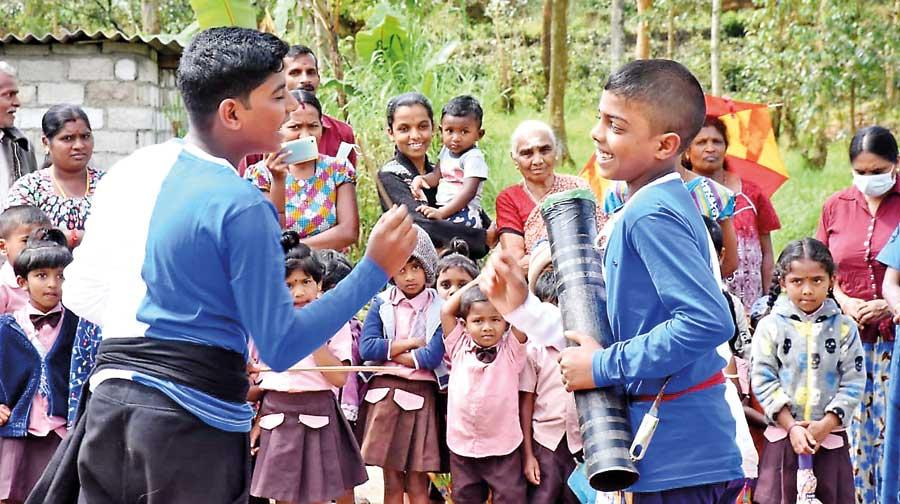
“The Children Behaved Strangely”
Rasaiah Longanathan has been in theatre for 17 years. Out of those, he has spent 14 years with the Janakaraliya programme. Janakaraliya is Sri Lanka’s first ever mobile theatre group which took important social messages through theatre and drama to rural parts of the country. This unique theatre group consisted of full time professional and amateur artistes from diverse ethnic groups including Sinhala, Tamil and Muslim, and was the brainchild of award winning filmmaker, pioneering teledrama director Parakrama Niriella. “I trained under Parakrama sir. We received a lot from Janakaraliya in terms of theatre,” the multiple award winning thespian said.
He said that when they saw the call for applications for the Children in Lockdown festival , their need and their goal was to do something good for children of their own community. “Our initial plan was to conduct this programme in schools. To select 20 children from each school and conduct the workshop. We had even spoken to principals and made necessary arrangements. But since the COVID-19 outbreak schools were shut down.”
"There was new meaning and understanding of the relationships between the mother, father, son and daughter"
When the pandemic hit, children were demotivated to attend the workshops. Logananthan and his team then decided to select several children in Kirkoswald to seek their help in getting more children to attend the workshops. “When we told them that they had to act, they were scared. They said they can’t act. We had to convince them that there was nothing to be afraid of.” Eventually, they had a small group of children assembled, which alone took about three months, he said.
“When the children gathered for the first meeting, they behaved in a bit of an odd and strange way. Having been away from school for over one and half years, their behaviour was not normal. These kids had the need to spread their arms out, and be free. When they first got to the hall, we had no control over them. They were running about, jumping up and down, hugging each other, forgetting social distancing rules. So for about two days, we let them be free. We told them to do whatever they felt like they had to do. And the children really enjoyed this. They sang, they danced, they really enjoyed this time, all on their own. It is only on the third day that we started to introduce what this programme was about, and what we expected to do with them.
"When they saw the call for applications for the Children in Lockdown festival , their need and their goal was to do something good for children of their own community"
The children were first introduced to some theatre games to get the project going. “We started to introduce ideas like Coronavirus to them, and got them to respond dramatically to these ideas. And then we posed them with questions like What was life before and after the pandemic. So these ideas got them to think and express their ideas freely,” Logananthan said.
Logananthan also observed that whenever one of the children was due to perform, the other children were used to heckle, or jeer. “We had to teach these children how not to do these kinds of things, how to be accepting of others flaws, and how to help them build. When children started accepting this, they started sharing more. They shared their problems, which we got them to write and eventually scripted this project.”
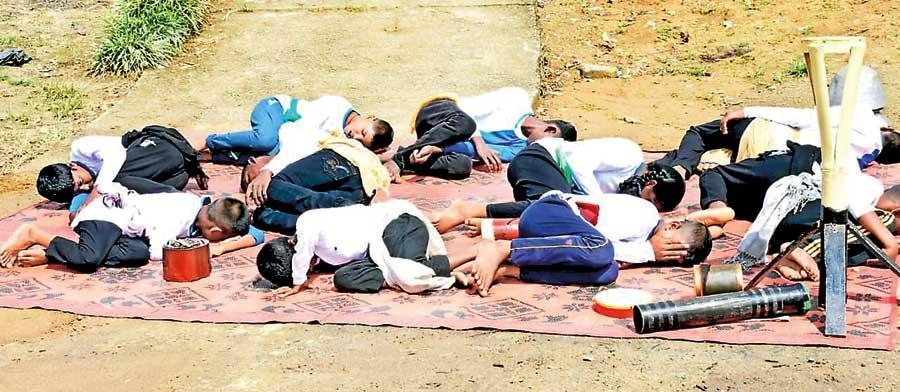
Children facing economic difficulties
“These children faced severe economic difficulties. One child is from a seven member family. With the pandemic, all the adults in this family including the child’s grandparents lost their income. Despite just being 10 years old, this situation made the child want to seek some employment. He went around estates and asked for work, jobs like cutting grass or to weed gardens. This got this child about Rs. 400 per day, which he would give his parents to buy food for the family,” the Director shared his experiences with one child of the group.
There was only one girl in this entire group of children, Logananthan said. “At just 13 years old, she takes care of the entire household, the goats and cattle they rear. Her parents work at the estate plucking tea leaves. After that, they both go on to take extra work, so the responsibility of managing the entire household falls on this child. She wakes up at 5 am, attends to all this and also turns up for practice at 9.30 am,” he said.
Some other children who also had to take care of their siblings, first would go to their parents’ workplaces to deliver their meals, and only then would they be able to come for the practice sessions. Some children even had to take care of the elderly who were at home alone, Logananthan shared.
Most children were not able to attend school for this entire period, Logananthan said. “One child recalled how he felt really ashamed to ask the neighbour for their phone, to attend school. When the neighbours did offer the phone, they had waited with them until they finished the class, which the child had found to be extremely uncomfortable, this child said. So I don’t think Zoom classes were of any benefit to these children.”
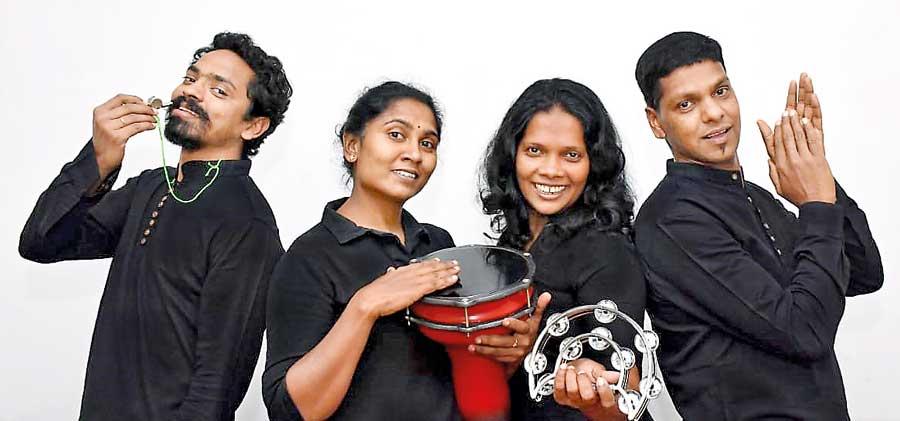
The Theatre Mates Cultural Association with Rasiah Logananthan, Selvaraj Leelawathy, Ronika Chamali and M. Ajanthan Shantha Kumar
There were tears of joy!
Gathering children for a theatre project amidst various such difficulties was not an easy task. Logananthan’s wife Leelawathy (Leela) took the responsibility of talking to the parents in the estate, to convince them of how beneficial it can be for the children. “Since this was Leela’s village, the residents were ready to listen to her, because she held the respect of the community. Some parents had even beaten up their child, blaming the child for wasting time, when they could have worked and earned money instead. So it certainly wasn’t easy to get these children to come for a theatre programme, but we managed to convince them,” he said.
Once the children were ready to perform, they faced yet another hurdle. “There was a place which we had decided within the Kirkoswald Estate to put up our show. But the estate management didn’t allow us to perform. They questioned our motives. They asked if we were going to brainwash people with our plays, so we faced a lot of difficulties.”
But the team didn’t accept defeat. They showed several shows just around the line houses. “We invited parents and teachers too,” he said. “There was one play we did inside the Kovil premises. After watching this, many parents realised that these children were enacting their own realities and their own problems. Parents started to realise how perceptive children are and how much the children have gone through. There was new meaning and understanding the relationships of the mother, father, son and daughter. There were tears of joy!”
The youth community of the area had come together to help Logananthan and his team with logistics. They had even made a trophy to be presented to the young thespians which was presented by the parents of the child actors. “This was a very heartwarming moment for the children and the parents”
Following the Children in Lockdown Arts Festival, Logananthan has received many messages of support, with offers to do more for the children of the estate community.
“They ask me what to do. These children have various problems. Supporters can’t find a solution to every one of them,” Logananthan said. “But what they can do is to help us, this community and these children to move forward as a group and as a community. If we can help these kids with another programme like this, that would help the entire community,” Logananthan appealed.
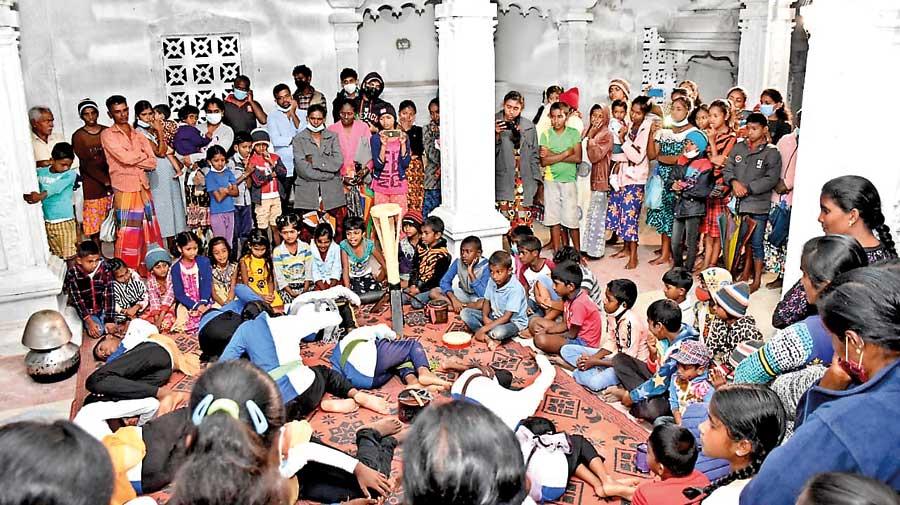
Children of the Kirkoswald middle division estate in Bogawantalawa
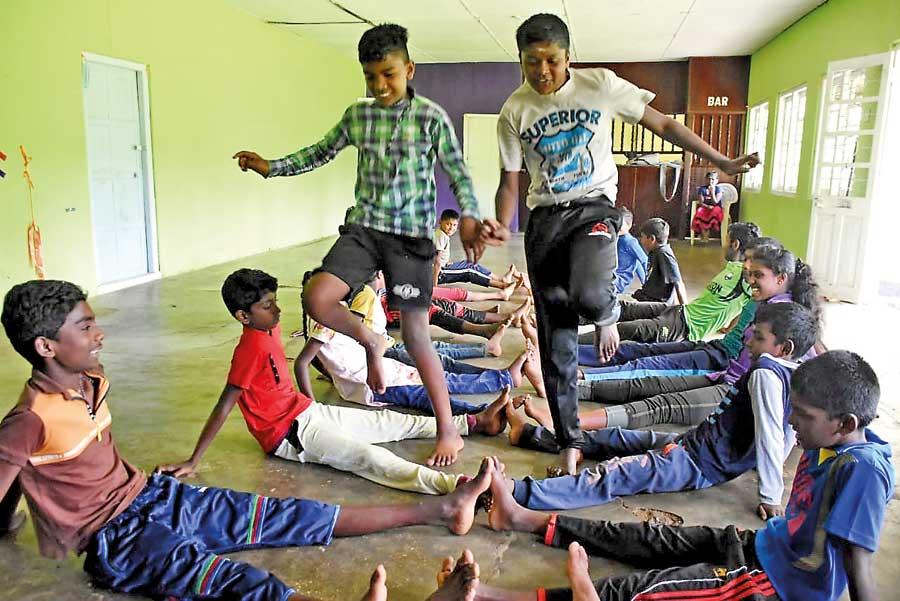
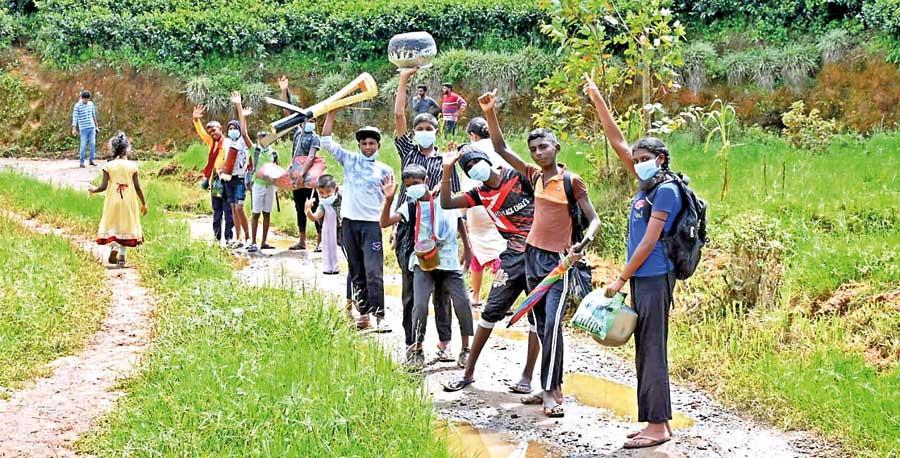
26 Nov 2024 2 hours ago
26 Nov 2024 2 hours ago
26 Nov 2024 2 hours ago
26 Nov 2024 2 hours ago
26 Nov 2024 2 hours ago